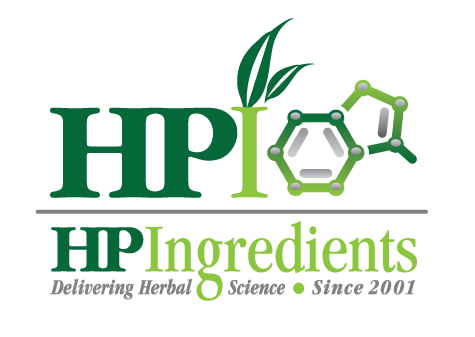Bradenton, FL — Annie Eng, CEO of HP Ingredients Corp., has announced that the company’s NeuroActin® was awarded a patent — US 2015/0352075 A1 — for its potential use in brain and cognitive support supplements.
The patent, “Treatment of Alzheimer’s and Cognitive Impairment with Andrographolides,” describes how Andrographolide (ANDRO), a labdane diterpene and a major component of Andrographis paniculata (NeuroActin®) was found to prevent and reverse neuropathology and stimulates neurogenesis.
GSK-3b is an enzyme that regulates the Wnt signaling pathway; it suppresses brain activity by reducing the flow of chemical messages sent between brain cells. The Wnt signaling pathway is essential in the central nervous system as it participates in neural tube formation and mid-brain development. When the Wnt pathway is blocked, this reduces healthy neurogenesis and impairs learning and memory function. Patent co-inventor Nibaldo Inestrosa states, “We found that Andrographolide activates Wnt signaling and inhibits GSK-3b. In doing so, Andrographolide induces post-synaptic proteins and synaptic function, improves memory and spatial learning in APP Alzheimer model mice, and stimulates neurogenesis.”
Andrographolide is a potent anti-inflammatory agent isolated from the plant Andrographis paniculata. It has been reported to inhibit NF-κB at the DNA binding. “In our research, we have found that andrographolide reduces neuro-inflammation, protects against neuron cell loss, reduces amyloid-beta peptide levels and prevents the breakdown of the tau protein,” explains patent co-inventor Dr. Juan Hancke.
In a healthy brain, microtubules are the transport system, organized in orderly parallel strands, where food molecules, cell parts and other key materials travel. Tau protein stabilizes microtubules. Beta amyloid causes tau protein to collapse into twisted strands called tangles. When Tau proteins are defective, they no longer stabilize microtubules properly. Nutrients and other essential supplies can no longer move through the cells, which eventually cause neuronal cell death. “Andrographolide prevents tau hyperphosphorylation and significantly reduces the amyloid deposits in the brain.” states Dr. Hancke.
In 2015 alone, Inestrosa and Hancke had published a total of three research papers about Andrographolide and Alzheimers. The latest research titled “Andrographolide Stimulates Neurogenesis in the Adult Hippocampus” was published on Neural Plasticity in December 2015. This presents a significant breakdown as it shows the potential of Andrographolide to induce generation of newborn neurons, increases density of immature neurons, increases percentage of the granular cell layer and more complex morphology.
Eng comments, “Typically, a 30-minute aerobic exercise, such as running, has positive effects on brain structure and function, for example, the generation of neurons (neurogenesis) in the hippocampus, a brain structure important in learning. We are thrilled to learn of the potential of Andrographolide in stimulating neurogenesis. While our specific in vitro experiments entail markers for Alzheimer’s disease, our research indicates a much broader potential for Andrographolide to treat other forms of cognitive impairment.”
In addition, she says, “Although the dietary supplement industry cannot produce supplements to treat a disease state, our patent supports the concept of protecting the brain’s structure, promoting better memory and sharper mind, and hence, its healthy functioning.”
NeuroActin® is an Andrographis paniculata extract standardized to contain not less than about 50% (w/w) andrographolide, 14-deoxyandrographolide, neoandrographolide and a combination thereof.
(877) 437 2234
Visit us at HP Ingredients Booth # 904 at Expo West/Engredea
Anaheim Convention Center
March 11-13, 2016


